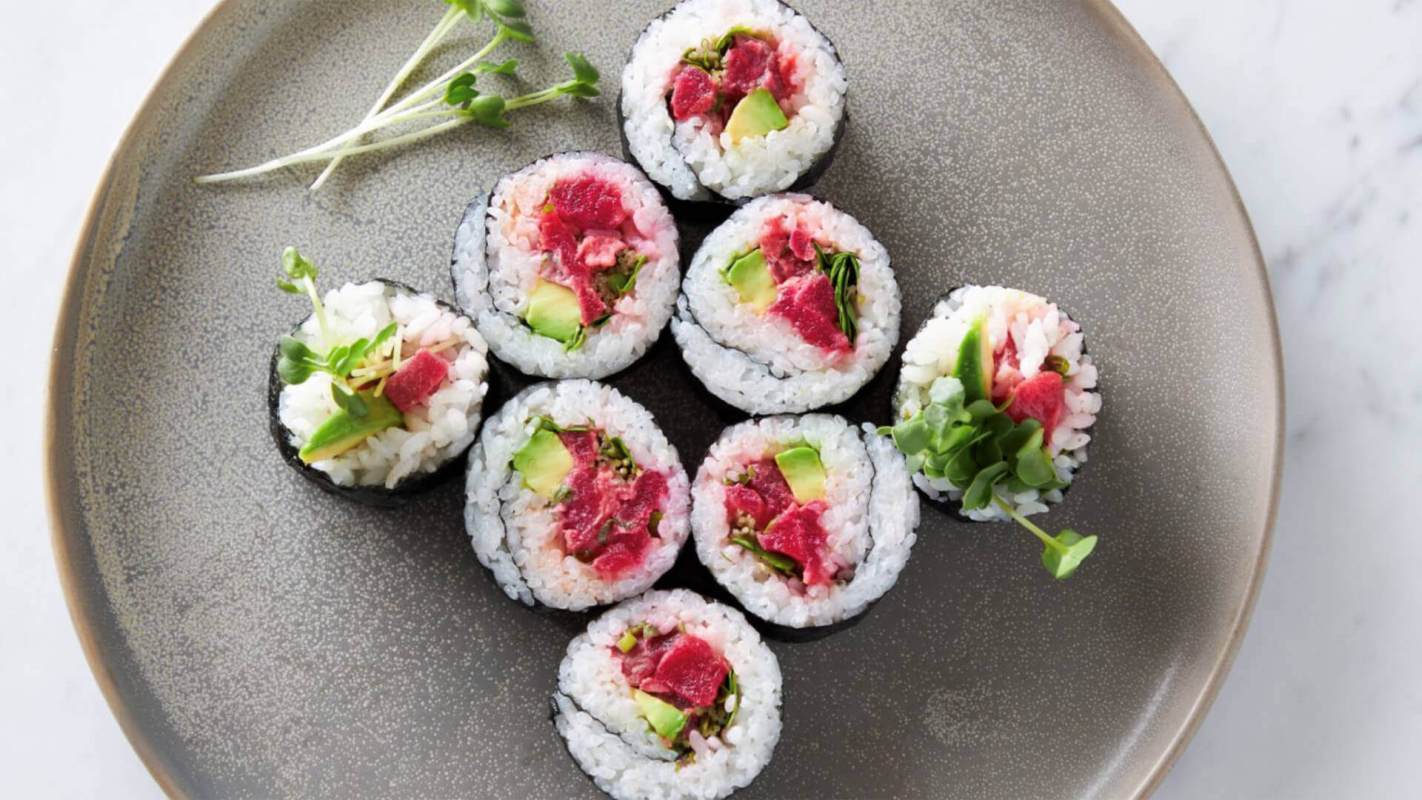Finless Foods is on a mission, and there's nothing fishy about it. The company wants to "create a future for seafood where the ocean thrives" while changing "how the world eats." To do that, Finless Foods has focused on two initial products: plant-based tuna and cell-cultured tuna.
What is 'finless fish?'
The plant-based tuna is versatile, low calorie, and easy to thaw and serve, according to the company's website. To achieve a fish-like texture and taste, nine plant-based ingredients are cut, cooked, and combined. The result is a brightly colored vegan tuna substitute.
Cell-cultured tuna is a bit more complicated. This is real tuna, grown from tuna cells in a controlled environment where they're fed essential nutrients in a bioreactor. Workers even provide scaffolding to encourage the cells to take on three-dimensional structures. This product is meant to provide an alternative to raw, sushi-grade tuna.
Why the focus on tuna?
The U.N. says that tuna is the most-consumed and second-most-caught fish in the world. There's a big opportunity in making some of the world's tuna consumption more sustainable with plant-based or cell-cultured alternatives.
The International Seafood Sustainability Foundation reports that in 2020, around 4.9 million tonnes of tuna were caught from major commercial tuna stocks. As of July 2022, 13% of those major commercial tuna stocks are overfished and 22% more are at less than healthy levels.
The World Wildlife Fund (WWF) states that, because tuna are top predators and food sources in marine food chains, overfishing can destabilize ocean environments.
Finless Foods also asserts that by eating plant-based and-cell cultured tuna substitutes, consumers can avoid mercury health concerns. A long history of industrialization and toxic pollution have made it so that all fish we catch have at least some mercury inside of them.
As big fish eat smaller ones, that mercury builds up and gets more concentrated in a process called biomagnification. Mercury exposure can lead to serious health risks in developing fetuses, babies, and children, and the Environmental Defense Fund recommends that buyers reduce their consumption of predatory or long-lived fish like tuna to avoid these effects.
Finless Foods claims cell-cultured tuna won't carry toxic contaminants like mercury and can be a healthier alternative.
The Future of Finless Foods
Finless Foods recently raised $34 million in Series B funding, and these funds, along with revenue from selling plant-based tuna in the future, will be used to continue research and development at the company, apply for regulatory approval for cell-cultured tuna, and expand nationally.
The tuna makers aren't planning on stopping there, of course. After its tuna is competitive with traditional fish, the company is setting its sights on providing sustainable alternatives for other species as well.
Follow The Cool Down on Instagram and TikTok.







